Who is Grace Mugabe?published at 17:46 BST 7 September 2019
Zimbabwe's first lady, or "Gucci Grace" to some, was tipped to be the country's next president.
Read MorePresident Mugabe has made his first public appearance
He attended a university graduation ceremony
Military still referring to him as "commander-in-chief"
But he is under growing pressure to resign
Huge rally planned to demand he steps down
Two African leaders urge him to go
China calls for "legal solution" to crisis
US demands "quick return to civilian rule"
Soldiers remain on the streets of the capital, Harare
Some government ministers have been detained
The whereabouts of Mr Mugabe's wife remain unclear
Dickens Olewe and Farouk Chothia
Zimbabwe's first lady, or "Gucci Grace" to some, was tipped to be the country's next president.
Read MoreWe are ending our live coverage of the army's seizure of power in Zimbabwe. We'll be back if there is any dramatic development. In the meantime, get the latest news from our our website.
We leave you with this photo, which captures the contradiction of the military takeover in Zimbabwe: Mr Mugabe is in office, but not in power:
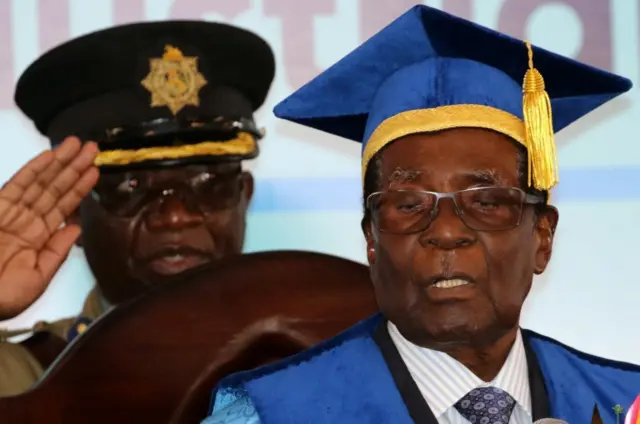 Image source, Reuters
Image source, Reuters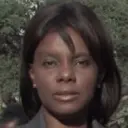 Shingai Nyoka
Shingai Nyoka
BBC Africa, Harare
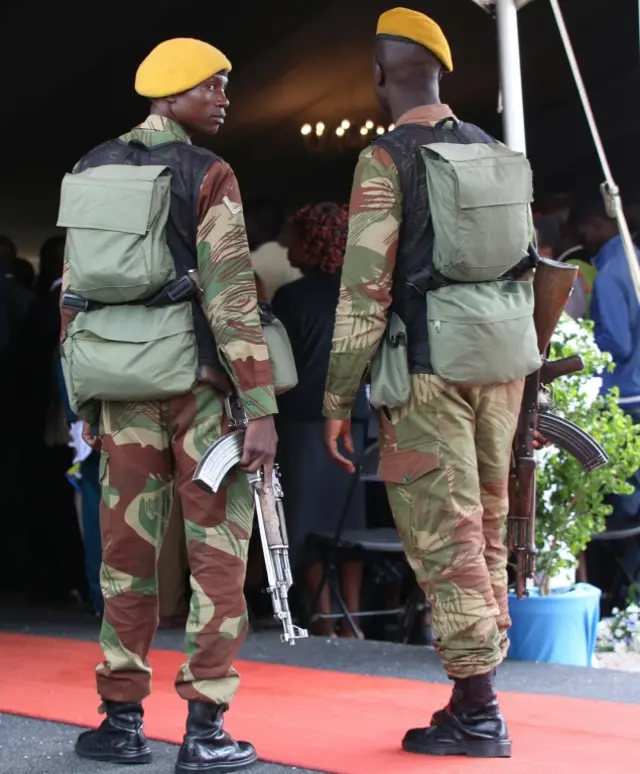 Image source, EPA
Image source, EPAFollowing guns and explosions on Tuesday night, many thought it was the end for Zimbabwe's long-time leader, Robert Mugabe.
But the violence has been replaced by an almost surreal normal.
Mr Mugabe has not yet reached a deal with the military about his future, and does not seem to be losing any sleep over it.
For the first time since his arrest, he appeared in public today, conferring degrees on university students in the capital, Harare.
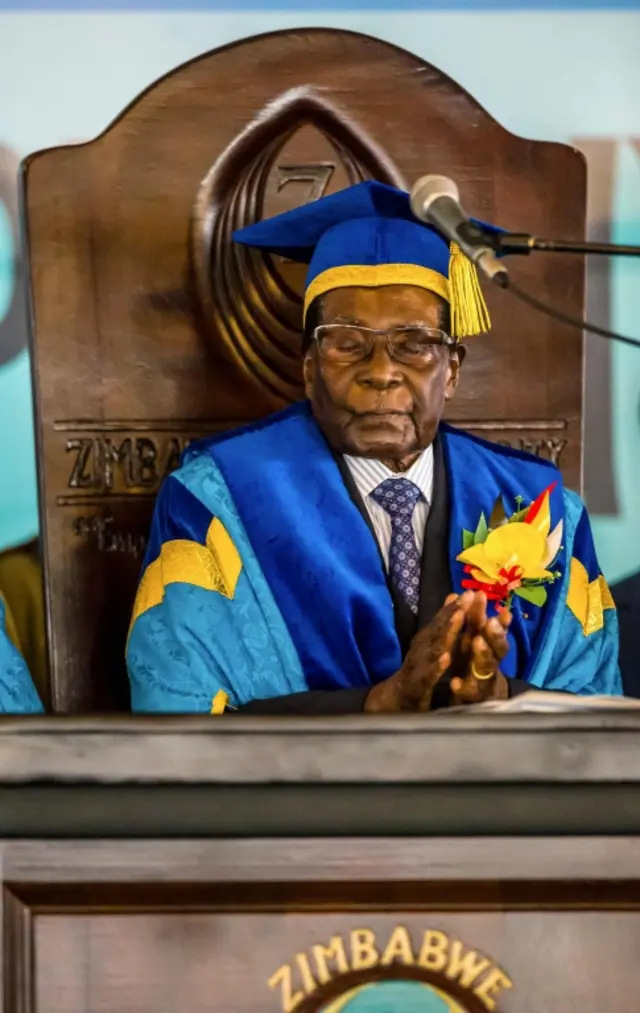 Image source, AFP
Image source, AFPRobert Mugabe conferred degrees on more than 3,000 students
Sources suggest that he wants to continue as a figurehead until the ruling Zanu-PF party's national congress next month.
The catalyst of this crisis, his wife, Grace Mugabe, has not been seen in public.
Many suggest that she is confined to their private residence in the capital. It's her ambition to take over as vice-president that set off these events.
Mr Mugabe sacked Vice-President Emmerson Mnangagwa last week and Zanu-PF expelled him, in what was seen as a move to ease his wife's path to power.
With Mr Mnangagwa being a former defence minister and a veteran of the war for independence, the military intervened, saying it was targeting "criminals" around the president.
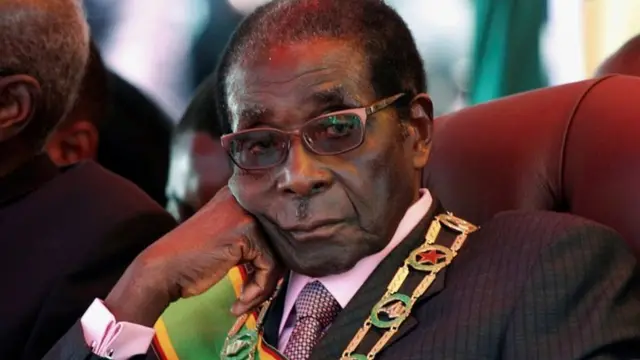 Image source, Reuters
Image source, ReutersRobert Mugabe was widely respected in Africa
Where do world leaders go when they're cast out of power and need to find a safe haven fast?
President Robert Mugabe famously declared that he would cling to power in Zimbabwe "until God says 'Come'". And at the age of 93, he might have expected that hour to arrive before a human intervention.
Nonetheless, following the military takeover, the leader of 37 years' standing must now barter himself a future.
Even now, the military is still negotiating with Mr Mugabe about his possible resignation, but when - or if - he goes, can he expect a villa in the sun like fallen strongmen of the past?
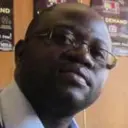 Stanley Kwenda
Stanley Kwenda
BBC Africa, Kutama
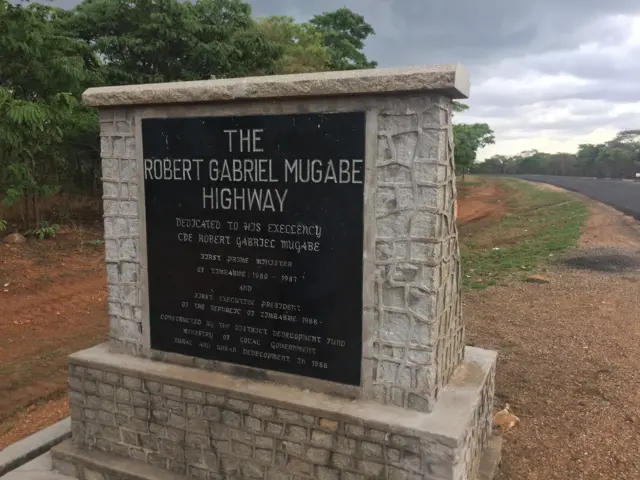
To get to President Robert Mugabe's rural home, you drive along the Robert Mugabe Highway.
It is probably one of the most well-maintained roads in Zimbabwe. It is like driving on a carpet.
Along the way you are greeted by a plaque erected in his honour.
Kutama Village is home to the 93-year-old. It is a small and tightly connected village where everyone knows each other.
You cannot really tell if they have been rattled by the current political crisis.
As we arrived, there was an air of uncertainty.
Mr Mugabe is respected here. To many, he is a father and a friend.
Speaking to me at his compound, a 65-year-old neighbour told me:
Quote MessageHe's kind, he's a good man and he understands people's plight."
The man goes to St Francis Xavier Roman Catholic Church with Mr Mugabe, a devout Christian, whenever he visits.
Quote MessageHe never demands special treatment. He visits people to check on their welfare."
Nevertheless, he supported the intervention by the army to remove Mr Mugabe from office, saying it is meant to correct a broken system:
Quote MessageIf his term goes out then there's nothing wrong."
When I approached other villagers, I attracted immediate suspicion. They were not keen to talk.
But it seems to me that Mr Mugabe is seen as a hero in the village. It is easy to spot people wearing clothes emblazoned with his face.
Police officers are patrolling the area around Mr Mugabe's home.
You can't really peep inside the compound because of tight security.
Students at the University of Zimbabwe in the capital Harare are hopeful that the country will emerge from its current political crisis stronger, and will be able to deal with its myriad economic and social problems, as BBC Focus on Africa radio heard from them:
 Kim Chakanetsa
Kim Chakanetsa
BBC World Service
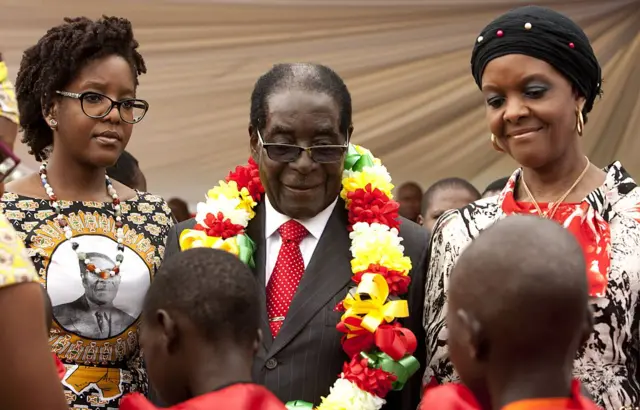 Image source, AFP
Image source, AFPPresident Robert Mugabe, seen here with his wife Grace and daughter Bona, comes from the Shona ethnic group
Great weight is placed on respecting your elders among the Shona, which are Zimbabwe's biggest ethnic group. It is one of the fundamental values.
At a young age you are taught to greet, speak and interact with elders in a particular manner.
For example, when arriving at someone's house, an exchange of greetings will be led by the younger party, who must enquire about the health of every adult present.
For girls or women, this could involve kneeling and clapping, then asking each individual in turn about their health. Boys and men will do much the same, but crouching.
Failing to do so is frowned upon, and taken as a sign of a poor upbringing or lack of respect.
Within the household, grandparents wield considerable influence.
This reverence for elders extends beyond your family. Any older woman or man is to be treated in the same way.
All 10 provincial committees of Zimbabwe's ruling Zanu-PF party have resolved to remove President Robert Mugabe from office, a UK-based representative of the party has said.
The decision is expected to be endorsed by the party's top leadership body, the central committee, which will then elect the man Mr Mugabe sacked as vice-president, Emmerson Mnangagwa, as the acting leader, Nick Mangwana said.
Mr Mnangagwa will then be endorsed as the next president at Zanu-PF's national congress, next month, he added in a tweet:
Allow X content?
This article contains content provided by X. We ask for your permission before anything is loaded, as they may be using cookies and other technologies. You may want to read X’s cookie policy, external and privacy policy, external before accepting. To view this content choose ‘accept and continue’.
Zimbabwean academic Chipo Dendere tweeted that the central committee would also have to deal with other issues, including the fate of Vice-President Phelekezela Mphoko:
Allow X content?
This article contains content provided by X. We ask for your permission before anything is loaded, as they may be using cookies and other technologies. You may want to read X’s cookie policy, external and privacy policy, external before accepting. To view this content choose ‘accept and continue’.
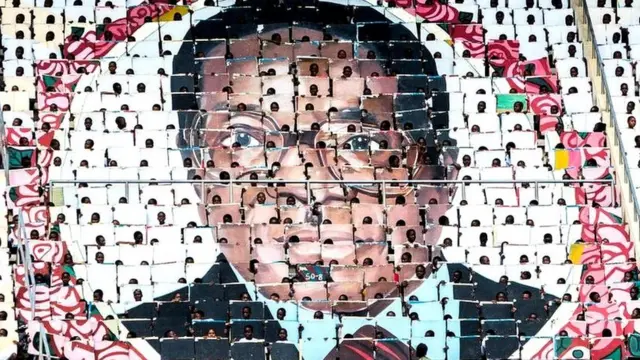 Image source, AFP
Image source, AFPSchoolchildren formed this mosaic of Robert Mugabe at Independence Day celebrations in April
President Robert Mugabe's first public appearance after the military takeover in Zimbabwe will have puzzled some.
Here he was at a university graduation ceremony given the authority to hand students their degrees, almost as if nothing had happened.
It tells us two things.
Firstly, this was political theatre. The suggestion being that behind-the-scenes negotiations over his exit deal are cordial.
But it was also more than spectacle. It showed that President Mugabe's opponents want to treat the elder statesman with dignity.
As in much of Africa, respecting your elders is ingrained in Zimbabwe's culture.
And 93-year-old Robert Mugabe, a liberation fighter who became the country's leader at independence in 1980, is seen as the father of the nation.
Zimbabwe's #ThisFlag protest movement leader Evan Mawarire has urged people to attend tomorrow's planned rally to demand President Robert Mugabe's resignation so that the southern African state could make a "fresh start".
Mr Mawarire, a pastor, is currently holding a livestream on his Twitter account to encourage Zimbabweans to show up at the rally:
Allow X content?
This article contains content provided by X. We ask for your permission before anything is loaded, as they may be using cookies and other technologies. You may want to read X’s cookie policy, external and privacy policy, external before accepting. To view this content choose ‘accept and continue’.
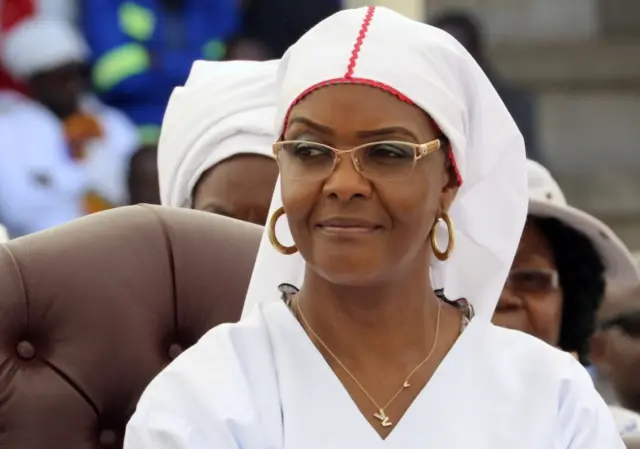 Image source, Reuters
Image source, ReutersFirst Lady Grace Mugabe wanted to be the next president
A "palace revolution" has taken place in Zimbabwe, after a split in the ruling Zanu-PF party over who will succeed President Robert Mugabe, South African political analyst Anthoni van Nieuwkerk has said.
Mr Mugabe sacked his deputy, Emmerson Mnangagwa, in what was seen as a move to anoint his wife, Grace, as his successor.
Mr Mnangagwa, a former defence minister, vowed to fight back, leading to the current crisis.
His allies were grouped in Zanu-PF faction known as Lacoste, while Mrs Mugabe's allies were G-40.
Mr Van Nieuwkerk told AFP:
Quote MessageIt is a palace revolution where one section of the ruling Zanu-PF party is using elements of the military, but not all of the security services - the police for example - to bring change within the ruling party.
Quote MessageGrace Mugabe was trying to get rid of her opponents, who were using aspects of the military to get rid of her.
Quote MessageSo it is a limited military intervention with political purposes. The coup is against G-40
Quote MessageThe calculation that the military is making is 'let's treat him with dignity and respect as we search for the way forward'. That is why he made the appearance at the university."
 Stanley Kwenda
Stanley Kwenda
BBC Africa, Kutama
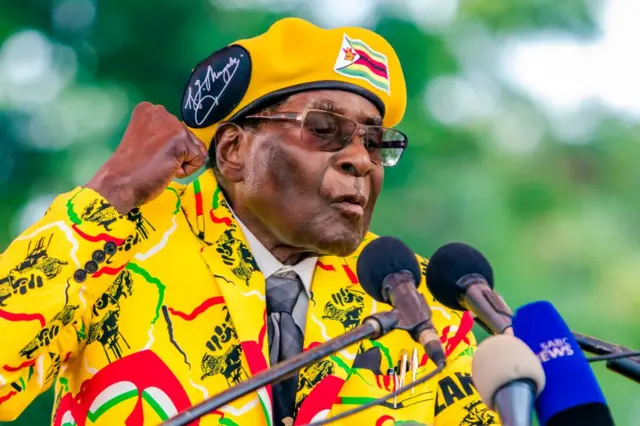 Image source, Getty Images
Image source, Getty ImagesVillager says that Robert Mugabe understands the plight of people
There is no military presence of in Zimbabwean President Robert Mugabe's home village of Kutama, some 90km (55 miles) from the capital, Harare.
Many here are aware of the political crisis unfolding but are reluctant to talk about it.
A villager, who did not want to be named, said that people are fond of the nonagenarian president.
Mr Mugabe is a good man "who understands people's plight and likes to mingle with people in the area when he visits", he said.
However, he would not mind if the president, in power since 1980, was forced out of office, the villager added.
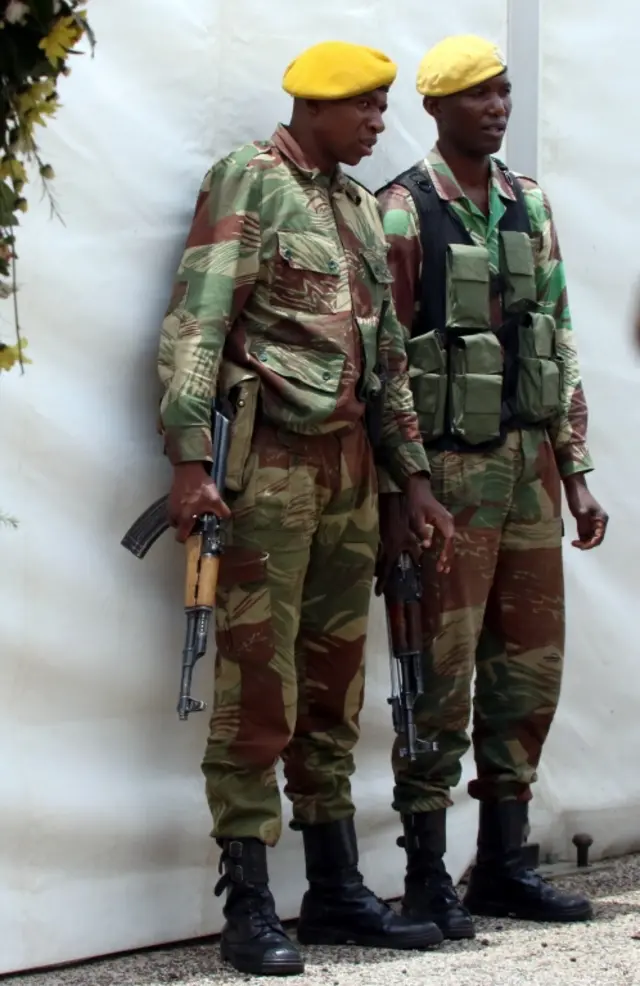 Image source, Reuters
Image source, ReutersThe military has ended 36 years of loyalty to President Mugabe
US Secretary of State Rex Tillerson has called for a "a quick return to civilian rule" in Zimbabwe, following the army takeover on Wednesday, Reuters news agency reports.
He described the situation as "a concern", adding:
Quote MessageZimbabwe has an opportunity to set itself on a new path, one that must include democratic elections and respect for human rights."
Mr Tillerson made the comments to African foreign ministers in Washington, Reuters reports.
The US is seeking "a new era" in Zimbabwe, the State Department's top official for Africa has said, Reuters news agency reports.
Donald Yamamoto added:
Quote MessageIt's a transition to a new era for Zimbabwe, that's really what we're hoping for."
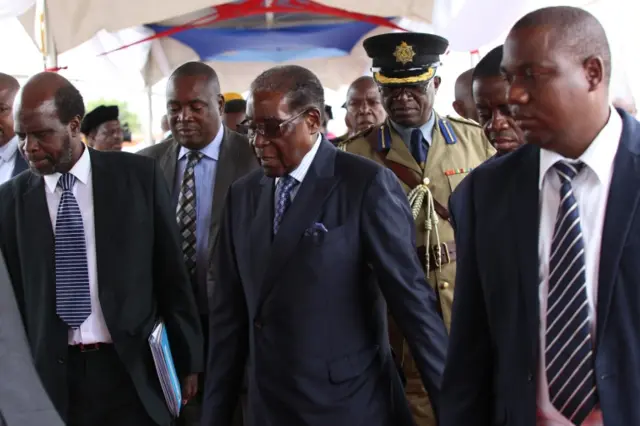 Image source, EPA
Image source, EPAMr Mugabe was a fierce critic of Western powers
Regional mediators have been mediating between Mr Mugabe and the army to end the crisis.
The army says it has not staged a coup, despite the fact that Mr Mugabe is in its custody.
He was allowed to attend a university graduation ceremony earlier today.
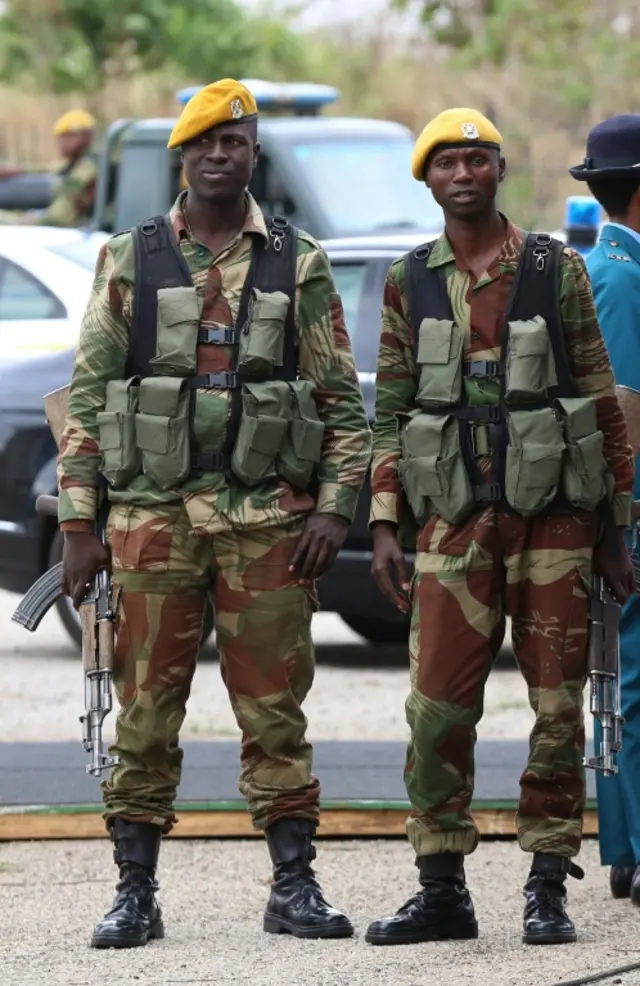 Image source, EPA
Image source, EPAThe army is deployed on the streets of Zimbabwe's capital, Harare
China has called for the political crisis in Zimbabwe to be legally resolved, Reuters news agency reports.
Foreign ministry spokesman Geng Shuang told reporters:
Quote MessageChina calls on all sides in Zimbabwe to keep their eyes on the country's long-term and fundamental interests, and uphold dialogue and consultations to bridge differences, to promote a peaceful and appropriate resolution to the issue under a legal framework."
China was a key ally of Mr Mugabe, who increasingly pursued a "Look East" policy after Western powers condemned his controversial land seizure programme and treatment of the opposition.
China gave Mr Mugabe strong backing during the 1970s war for independence, and has invested heavily in the southern African state.
Last week, Zimbabwe's army chief Gen Constantino Chiwenga was on an official visit to China when Mr Mugabe fired his deputy Emmerson Mnangagwa.
Gen Chiwenga is allied with Mr Mnangagwa, and put Mr Mugabe under house arrest on Wednesday.
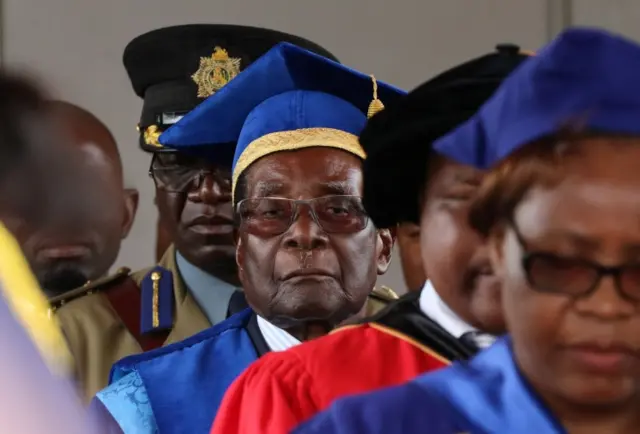 Image source, Reuters
Image source, ReutersThe military detained President Robert Mugabe on Wednesday
Zimbabwean President Robert Mugabe was not accompanied by the presidential guard when he attended a university graduation ceremony in the capital, Harare, opposition politician David Coltart has said.
The MDC senator said he had been reliably informed that Mr Mugabe's convoy was made of only three a cars.
By allowing him to attend the event, the army generals who put him under house arrest on Wednesday were signalling to the regional bloc, the Southern African Development Community (Sadc), that Mr Mugabe was fine - but at the same time they were "keeping him in his place", he said.
Sadc is trying to mediate an end to the crisis.
Ivory Coast's President Alassane Ouattara has added his voice to calls for President Robert Mugabe, 93, to resign, AFP news agency reports.
He praised Mr Mugabe's role in the fight against colonialism, saying he "has been the object of respect and even adulation from many Africans and young Africans".
However, the "world has changed" and because of his age and the "long time he has spent in office, everyone is aware that it is time for him to hand over his seat to a new generation", Mr Ouattara added.
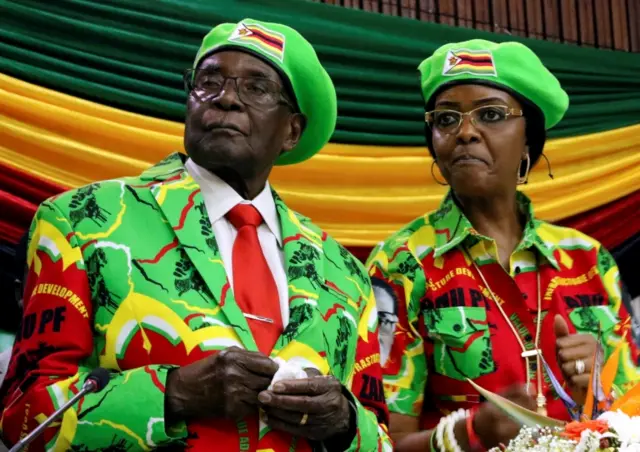 Image source, Reuters
Image source, ReutersPresident Robert Mugabe's wife, Grace, 52, harboured ambitions to succeed him
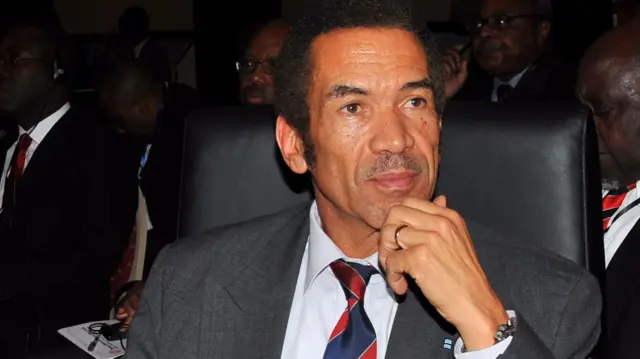 Image source, AFP
Image source, AFPMr Khama has been a strong critic of Mr Mugabe
Botswana's President Ian Khama has backed calls for Zimbabwean leader Robert Mugabe to step down, the Reuters news agency reports.
He says that the military intervention was "an opportunity to put Zimbabwe on a path to peace and prosperity".
He added:
Quote MessageI don't think anyone should be president for that amount of time [37 years]. We are presidents, we are not monarchs. It's just common sense."
Botswana is among regional countries working to find a solution to resolve the ongoing political crisis.
Mr Khama is a long-standing critic of Mr Mugabe, and has previously called for him to step down.
Analysis
 Joseph Winter
Joseph Winter
BBC News website Africa editor
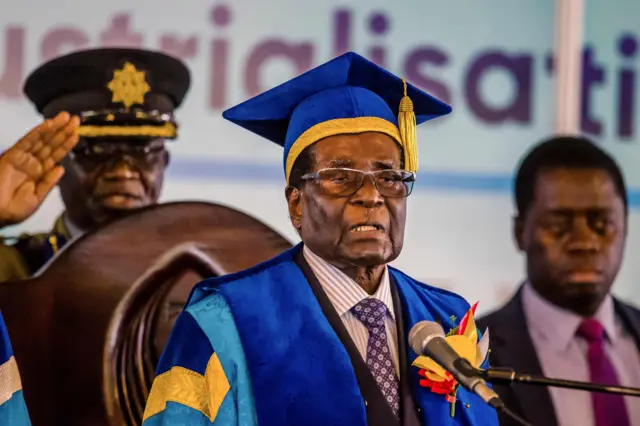 Image source, af
Image source, afZimbabwe's security chiefs have worked with Mr Mugabe since they fought together in the 1970s war of independence
Although the army is obviously calling the shots in Zimbabwe, in public they still refer to Robert Mugabe as "his excellency, the president" and even "commander-in-chief".
This is why he has been allowed to attend the graduation ceremony.
This is partly to keep up the pretence that they have not staged a coup but they also have a genuine, deeply felt respect for him going back more than 40 years.
All of Zimbabwe's security chiefs have worked with Mr Mugabe since they fought together in the 1970s war of independence - and the bonds forged in that struggle are difficult to break.
In many ways, Zimbabwe's military remains the armed wing of Zanu-PF, as it was when they were all rebels fighting white-minority rule in the then Rhodesia.
Furthermore, in Zimbabwean culture, the elderly are treated with respect and no-one wants to be seen to be treating a 93-year-old in an undignified manner, especially a man even opposition figures refer to as the "father of the nation".
Zimbabwe's only independent MP - Temba Mliswa - has shared a video message expressing his hope for change in the country.
He calls on Zimbabweans who want "change" to attend a rally planned to take place tomorrow in the capital, Harare:
Allow X content?
This article contains content provided by X. We ask for your permission before anything is loaded, as they may be using cookies and other technologies. You may want to read X’s cookie policy, external and privacy policy, external before accepting. To view this content choose ‘accept and continue’.